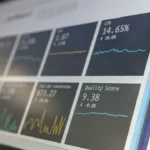Analyzing involves the process of controlling, designing and regulating funds in an organization or a company to the objectives of monetary and strategic planning. This important measure enables institutions to keep the right fiscal conditions and ensure sufficient control over revenues and expenses.
The Roles of Budgets
Hence, as much as budgeting is more than getting a balance between figures, it remains among the most crucial decision making tools. When the budget has been properly designed there is always a physical method or standard by which a business entity is in a position to measure a cost or outlay incurred and then take one of the following actions, namely either seek to influence the cost or outlay, retain it as is, or let it deteriorate as far as the level of profitability of the business entity is concerned. For the maintenance of the financial stability it is required for avoidance of building up of the company’s capacity in terms of financing and for setting up of stringent policies, which prevents unnecessary experimentation in expenditure by setting up bound and limitations.
These are the following concepts which are vital in budget management:
Creating a Budget
In an organization, budgeting begins with the preparation though in some organizations it is referred to as budgeting formulation. It incorporates the making of certain estimates of the revenue and expenditure of a given period; yearly, half-year, or monthly.
Identifying Expected Income
- Projected Revenue: Predict all the revenues that the company planned to earn including the sales revenue, service income, interest and any other head of receipt.
- Historical Analysis: In using quantitative data for making forecast, use historical data, and revenues, and the known pattern with referral to earlier financial returns and normal fluctuation periods.
- Variable and Fixed Income: Understand between the revenue is related to increased production or sales while the other is the number of revenues that will always remain constant with regard to the condition on the market.
Categorizing Expenses
- Fixed and Variable Costs: There is classification of expenses into fixed expenses that are constant in a certain period and variable expenses that change with business activities for example material and advertisement expenses.
- Operating and Capital Expenses: Understand between operating costs which are the expenses incurred in the process the running of the business for instance the costs of electricity and other resources; and the capital expenses which are the costs that are incurred in the procurement of important assets including equipment or facilities and the like.
- Realistic Estimation: Make estimates which would in fact be the expenses for which are to be paid and search for opportunities to reduce them with the resources and time used to do so.
Defining the Budget Period
Budget time span is the period of time in which the income and outgoings are anticipated. This can vary depending on the company’s needs and characteristics:
Annual, Quarterly, or Monthly Budgets
- Annual Budget: Less suitable for the actual management and implementation as well as for day-to-day motivational and organizational activities but rather for the strategic planning, for setting objectives for a year, or for reporting on the organization’s performance to the shareholders.
- Quarterly or Monthly Budgets: In the strategic level it is even more subtle but has the opportunity of coming up with decisions very fast especially in the conditions of risk and uncertainty.
Adapting to the Company’s Needs
- Nature of Activity: The decisive part of integrating KR and Approaches to activity define the budget period considering the character of the business. For example, a business that deals in clothes and accessories requires even more precise budgeting policies and procedures because the customer’s purchasing pattern is undoubtedly influenced by the seasons.
- Strategic Planning: Relate the time aspect of the budget with goals and objective of the firm. For instance, when a company begins to grow, the may require a strict and comprehensive formal annual budget for this purpose.
- Flexibility: Moreover, financial planning does not have to be and indeed can be to an extent nonprofit, and that is why the very phenomenon of the budget period might even need to be adjusted to one’s circumstances.
The aim of this particular paper is to expound on why the process of managing budgets is a fundamental practice. Controlling the available capital is one of the major keys to success of any firm. It provides several fundamental benefits that directly influence economic health and strategic decision-making:
Informed Decision-Making
- Strategic Planning: The best budget should be consistent with the company’s goal and should provide room for every decision that is made in an organization with a long-term outlook.
- Identification of Priorities: It becomes easier to identify which areas to invest or at least constrain on expenses since it is much in line with the laid down plans.
- Scenario Evaluation: Budgeting includes preparation of budget which lets one to make certain predictions and this is vital particularly in moments sensitive to cyclic economies.
Expense Control
- Setting Limits: Like this a person or an organization knows the amount that can be spent and this eliminate the issue of embezzlement.
- Identifying Inefficiencies: Therefore, analysis of the current and the planned spending can point out some avoidable expenditures, which may in turn contribute towards reduction of the expenditure while at the same time not compromising the performance of the business.
- Improving Profitability: Thus, any attempt at exercising control over costs in relation to the budgeted costs contributes to the act of defending as well as enhancing the aspect of profitability.
Performance Tracking
- Identifying Deviations: This situation implies that the matching of the actual information to the budgets set enables one to distinguished the differences and other problems.
- Taking Corrective Action: When the deviations occur, it implies that something can be done to counter the problem, this could be through cutting on the expenditure bills or reallocation of resources.
- Learning and Improving: Performance measurement is helpful as far as it is helpful in determining the budget for future projects, hence the lucrative aspect of the financial aspects of the general structures.
International Money Management and Finance Instruments and Systems
In the digital age, numerous tools and technologies facilitate budget management, making the process more efficient and accurate:
Budgeting Software
- Specialized Software: MS Excel, QuickBooks, and other programs like the complex part including the Adaptive Insights play a major role in the overhaul of budgeting as they allow accurate estimating and the constant amendment of the budgets.
- Practical Example: There is an online sales company called “Buy Now”, and other companies include; this period’s budget is created using Excel. They can accept data on estimated incomes and expenses, compute them with the aid of formulas provided by the software and even generate graphs to % display them. Forecasts to the numbers may be altered in any means because clients come with it with no reference to prior estimates.
Data Analysis Tools
- In-Depth Analysis: MS excel is used in the analysis of budget data and its impact on different business aspects while Power BI and Tableau are also used in analysis.
- Practical Example: “Pollos San Rico” is in fact a restaurant chain that makes use of Tableau in the processing of data that is related to the budget and financial part. It proves how, concerning sales and other factors, costs vary, and from where they spend profusely and where they should reduce their expenditure due to irregularities.
Mobile Apps
- Flexibility and Accessibility: There are some applications as YNAB and Mint, which provide a setting within business to which it is convenient to manage a budget on portable devices.
- Practical Example: Charges with its extremely low employee count fits best into the financial consulting firm category, and through Mint, users’ spending information is updated in real time; the expenditures are automatically categorized and the user is periodically notified that he/she is nearly spending the amount as set in their budgets and all this is done outside the workplace.
These are Frequently Asked Questions as it Relates to Programming/Budget Management
Business Budget and its Importance
On the other hand, business budget is information concerning expected earnings and spending within a given period. It is relevant because it helps business institutions to forecast future activities and control their spending within the organization when making decisions.
How can I build a sound budget for my Company?
The following are some of the benefits of a budget in the management of small businesses:
As for the role of technology for the purpose of the effective utilization of the available resources in the management of the budgets, it is essential to distinguish several key issues.
Budgeting, as a process, comprises of the systematic methods in preparation and control of the financial resources; it is empowered by the use of the computers through the budgeting programs and the statistical tools.
The following are the Strategies that Organizations can use to make Sure the Budgets they Develop are Current and Appropriate for the Year
A current budget is a working budget that is compared with the performance of the organization after some time intervals to check where exactly it stands, is altered and suitably created for the timely value of business activities.
Conclusion
This process is considered as one of the main financial controlling processes of a company and refers to the management of such resource. The second one can be explained by the fact that economics provides a rational systematic way of structuring objectives, estimating costs, and making choices. Thus, utilizing the effective skills and the modern tools and technologies available, the organizations can got the best out of their budget management for obtaining a long-term financial solidity. These principles focus on the rationality of utilizing resources and on enhancing the profitability of activities of a business; thus, rephrasing the things that make up financial planning and control into a more comprehensible plain to business.











